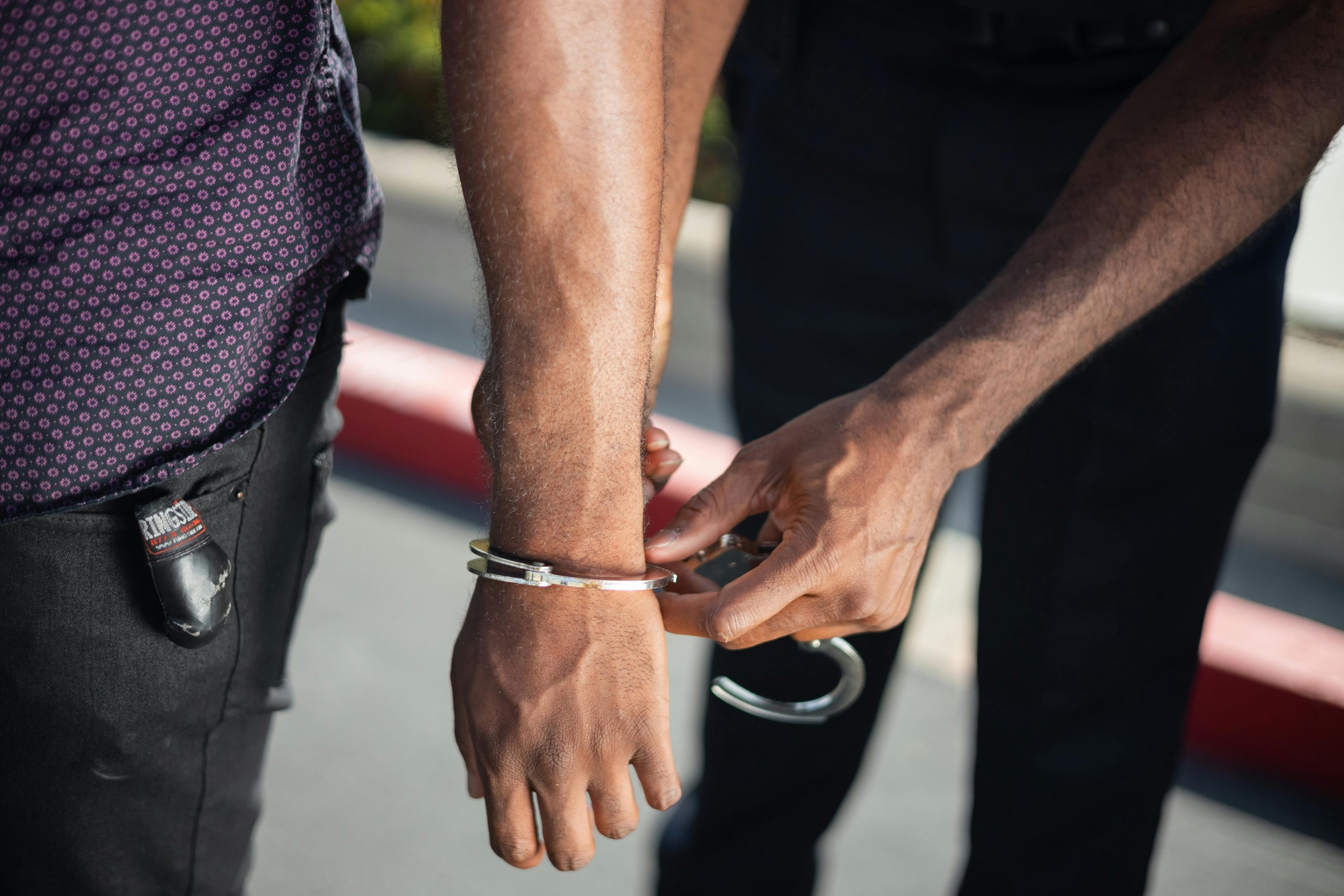
If you’ve heard the terms bench warrant and arrest warrant, you might think they mean the same thing. After all, both can lead to someone being taken into custody. But in the eyes of the law, they serve different purposes and are issued for different reasons. Understanding the difference between the two is important—especially if you or someone you know may be affected by one.
This article breaks down the differences between a bench warrant and an arrest warrant in simple terms. We’ll explain how they’re issued, why they happen, and what steps to take if you’re involved.
What Is a Warrant?

A warrant is a legal document signed by a judge that gives law enforcement the authority to take a specific action. Most warrants fall into two main categories:
- Bench Warrant
- Arrest Warrant
Both can result in someone being detained by the police, but the reasons behind them—and what happens next—can vary a lot.
What Is a Bench Warrant?
A bench warrant is issued by a judge, often from the “bench” (which is where the name comes from), when a person fails to follow court orders. This might happen when someone:
- Misses a scheduled court appearance
- Fails to pay a court-ordered fine
- Does not complete community service
- Disobeys probation rules
In other words, bench warrants are issued after you’ve already had a chance to appear in court but didn’t follow through.
Example:
Let’s say you were supposed to appear in court for a traffic ticket, but you didn’t show up. The judge may issue a bench warrant to have you brought in and explain why you missed your court date.
What Happens After a Bench Warrant Is Issued?
- Police are notified and can arrest you at any time.
- You might be arrested during a traffic stop or routine check.
- Depending on the case, you could be held in jail or given another court date.
What Is an Arrest Warrant?

An arrest warrant is different because it’s issued when law enforcement believes you’ve committed a crime. The police must first gather evidence and then present it to a judge. If the judge agrees, they’ll sign the warrant to allow your arrest.
Reasons for an Arrest Warrant:
- Suspected theft
- Assault or other violent crimes
- Drug-related offenses
- Any criminal investigation with probable cause
Example:
If the police collect evidence that links someone to a burglary, they can ask a judge to issue an arrest warrant for that person.
What Happens After an Arrest Warrant Is Issued?
- The police can search for and arrest you at home, work, or in public.
- Your name may be entered into a national or state criminal database.
- You will likely be taken to jail and booked for the suspected crime.
Bench Warrant vs Arrest Warrant: Key Differences
| Feature | Bench Warrant | Arrest Warrant |
| Who issues it? | A judge | A judge, based on police request |
| Reason issued | Missed court, unpaid fines, probation issues | Suspicion of committing a crime |
| Evidence required | No new evidence required | Requires probable cause and police report |
| Where it starts | In court | From a police investigation |
| How you’re arrested | During routine check or court follow-up | Targeted arrest by police |
Understanding these differences helps you know what kind of legal situation you’re dealing with—and how serious it might be.
Can a Bench Warrant Turn Into an Arrest Warrant?
Not exactly. The two serve different legal purposes. However, if you ignore a bench warrant long enough, it can lead to further legal problems, including new charges that might then trigger an arrest warrant.
Example: If you miss a court date for a minor offense, you may only get a bench warrant. But if you continue to ignore it, the court may charge you with failure to appear—a crime that could lead to an arrest warrant later.
How Do You Know If You Have a Warrant?
If you’re worried that a warrant may have been issued in your name—whether it’s a bench warrant or an arrest warrant—it’s important to find out quickly. Not knowing about a warrant doesn’t protect you from the legal consequences. Here are several safe and smart ways to check if you have a warrant:
1. Call the Local Courthouse
Contact the courthouse in the area where the warrant might have been issued. You can usually ask for the clerk’s office and provide your full name and date of birth. They can check their system and tell you if there is an active warrant or court date related to your name. This method is free and often reliable.
2. Check Online Court or Police Records
Many counties and cities have online databases where you can search public records. You’ll usually need your full name, birth date, and sometimes other identifying details like your address. These sites may list upcoming court dates, case statuses, or active warrants. Just make sure you’re using an official government website.
3. Hire a Lawyer
If you want to be extra cautious, especially if you suspect the warrant could lead to arrest, it’s a good idea to contact a criminal defense lawyer. Lawyers have direct access to legal databases and can safely investigate your situation. They can also advise you on the best steps to take if a warrant is found.
4. Ask the Police (Use Caution)
You can call or visit your local police department to ask if there’s a warrant out for you. But be aware—if there is an active arrest warrant, you could be taken into custody immediately. This option is risky unless you’re prepared to deal with the consequences on the spot.
5. Use a Warrant Search Service
Some private websites offer paid services to check for warrants across multiple states or jurisdictions. While these may be convenient, they can also be outdated or inaccurate. Use them with caution and try to verify any information with an official source.
6. Check with Your Probation Officer (If Applicable)
If you’re currently on probation or have been involved with the criminal justice system recently, your probation officer might be able to tell you if a warrant has been issued. This can help you stay ahead of any potential violations or surprises.
What Should You Do If You Have a Bench Warrant?
If you find out that you have a bench warrant, don’t ignore it. Taking quick action can often lead to better results and may help you avoid serious consequences. Here’s what you should do:
1. Call the Court
Start by contacting the courthouse that issued the warrant. Ask for the clerk’s office and explain that you’re trying to clear up a bench warrant. They can tell you why the warrant was issued—such as missing a court date or failing to pay a fine—and whether you can schedule a new appearance. In some cases, showing up voluntarily can work in your favor and help you avoid arrest.
2. Consult a Lawyer
It’s always a good idea to talk to a criminal defense attorney if you have a bench warrant. A lawyer can explain your options, talk to the court on your behalf, and may even be able to arrange for the warrant to be recalled without you having to go to jail. They can also help you prepare for your next court appearance so you can handle the situation the right way.
3. Turn Yourself In (If Needed)
If your lawyer recommends it, turning yourself in might be the smart move—especially if you want to show the court you’re taking responsibility. Depending on the circumstances, your lawyer may be able to schedule a time for you to surrender that avoids jail or allows for a quicker release. Turning yourself in voluntarily can sometimes lead to more lenient treatment from the judge.
4. Make Plans for Bail
In some cases, the court may allow you to post bail right after turning yourself in. Your lawyer can help you figure out if this is possible and prepare for it ahead of time. Having money ready or contacting a bail bondsman in advance can make the process go more smoothly.
5. Show Up for All Future Court Dates
Once your bench warrant is cleared, make sure you attend every future court hearing on time. Missing court again could lead to another warrant and more serious consequences. Mark your calendar, set reminders, and make transportation plans so it doesn’t happen again.
What Should You Do If You Have an Arrest Warrant?
An arrest warrant is serious—it usually means law enforcement believes you committed a crime and they’re actively looking for you. If you find out there’s an arrest warrant in your name, here’s how to handle it the right way:
1. Do Not Run or Hide
Trying to avoid the police may seem tempting, but it almost always makes things worse. If you’re caught, you could face additional charges for evading arrest. Judges may also be less willing to show leniency if they believe you were trying to flee. Instead, stay calm and take steps to deal with the warrant legally.
2. Hire a Criminal Defense Lawyer
One of the first things you should do is contact a criminal defense attorney. They’ll explain your rights, help you understand the charges against you, and guide you through the legal process. Your lawyer can contact the police or the court on your behalf, and may be able to negotiate the terms of your surrender or even challenge the warrant if there’s a legal issue with it.
3. Prepare for Arrest
Your lawyer may advise you to turn yourself in. While this can be stressful, it shows the court that you’re cooperating, which could help your case. Before turning yourself in, make arrangements for child care, work, or any personal responsibilities. You may also want to bring money for bail or have a bail bondsman ready.
4. Stay Silent Until You Have Legal Help
If you’re arrested, don’t try to explain yourself to the police without your lawyer present. Anything you say can be used against you in court. Politely say you’re invoking your right to remain silent and that you want to speak with your attorney.
5. Attend All Required Hearings
After you’re arrested and released, you’ll need to attend every court date related to your case. Missing court can result in another warrant and make your situation even worse. Stay in close contact with your lawyer to be sure you’re fully prepared.
Can You Be Arrested Without a Warrant?
Yes. In certain situations, the police don’t need a warrant. For example:
- If they witness a crime being committed
- If you’re caught in the act
- If there’s an emergency situation that justifies it
But in most cases, especially if time has passed since the incident, police need a warrant to make an arrest.
Final Thoughts: Don’t Ignore a Warrant
Whether it’s a bench warrant or an arrest warrant, ignoring it will only make your legal situation worse. Bench warrants may seem minor, but they can lead to arrest at unexpected times. Arrest warrants involve criminal accusations, which are much more serious and need legal help right away.
It’s important to deal with warrants quickly and responsibly. Always seek legal advice and take action to clear your name. Understanding the difference between a bench warrant vs arrest warrant is the first step toward protecting your rights and avoiding unnecessary trouble with the law.
